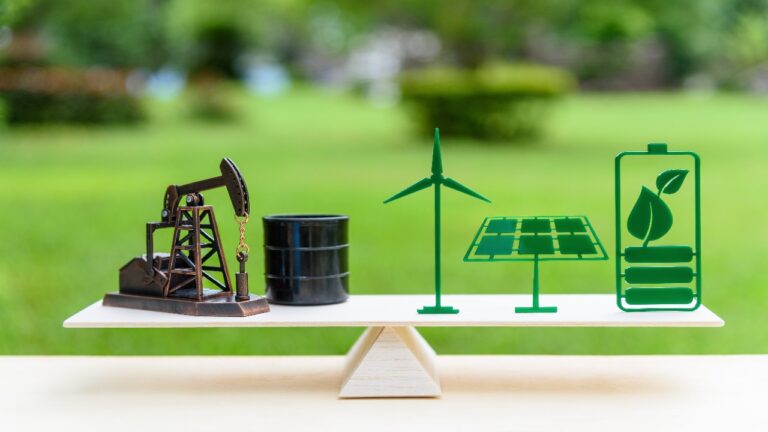Michael Smolens: Clean energy politics heat up for GOP, but it’s not about climate change
Republican senators seek to reverse cuts in renewable energy tax credits that could hurt their states as global warming continues apace.
Current Access Level “I” – ID Only: CUID holders, alumni, and approved guests only
The introduction of a flurry of bills calling for a carbon tax in the U.S. Congress is breathing some new life into a topic that has long been popular among economists but shunned by politicians.
In this edition of Columbia Energy Exchange, host Bill Loveless talks with Noah Kaufman, a Research Scholar at the Center on Global Energy Policy and economist specializing in carbon pricing, about this burst of activity on Capitol Hill and its implications for policymaking.
Before joining CGEP in 2018, Noah was a Deputy Associate Director of Energy and Climate Change at the White House Council on Environmental Quality during the Obama administration. He also worked at the World Resources Institute, where he led projects on carbon pricing, the economic impacts of climate policies and long-term decarbonization strategies.
Previously, he was a senior consultant in the environment practice at NERA Economic Consulting.
Noah and Bill discuss elements of the carbon-tax bills introduced by Democrats and even some Republicans in Congress and the circumstances under which they have cropped up now, as well as whether any of them stand a chance of much consideration as the U.S. approaches the 2020 presidential election year.
Noah also breaks down the thinking behind putting a price on carbon emissions, including the level to set it at and distribution of the revenue a carbon tax would raise.
How other climate policies – like incentives for renewable energy – match up with a federal carbon tax also comes up in the conversation, which Noah and Bill carried out by phone from their locations in New York and Washington, respectively.
A handy complement to this discussion is a new online resource from the Center on Global Energy Policy that illustrates what you need to know about a federal carbon tax in the United States.
President Trump's recent visit to the Gulf region marked a dramatic shift from the previous administration’s Middle East diplomacy. In his visit to Saudi Arabia, the UAE, and...

We often associate energy poverty with developing nations, but the reality is that tens of millions of Americans struggle to pay their monthly energy bills. Oftentimes, they forgo...

For years, Japan set aggressive decarbonization targets, positioning itself as a climate leader despite limited domestic resources. But recent geopolitical earthquakes like the ongoing war in Ukraine, increasing...

From oil pipelines crossing the border to integrated electricity grids, energy trade has long been a key part of the economic relationship between the United States and Canada....

And coal communities and fracking villages and all the rest.

Even as the U.S. pursues an energy agenda centered on achieving affordability through abundance, utilities and local governments have tools to help families navigate energy insecurities.

President Donald Trump's first official foreign policy trip, as in his first term, was to Saudi Arabia earlier this month, with additional stops in Qatar and the United Arab Emirates.

PetroStates and ElectroStates clash as fossil fuels and clean energy reshape global power, strategy, and alliances.
